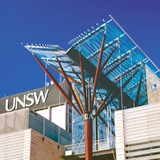This is a shelf course. A shelf course comprises a number of modules related to this broad area of study. Each module is a separate semester of study in this area and is offered in rotation. You can study TWO modules but you cannot study the same module twice.
|
Subject Area: Sociology and Anthropology
This course provides broad sociological and anthropological understandings of the media and theories of power and knowledge in the public arena and social life. By introducing students to different sociological theories and anthropological practices the course prepares students for key analysis of social and cultural understandings of media and popular culture such as the social theorisation of cinema and the public sphere.
Module: "Cinema and the Social World"
This course explores the of role cinema and images in social contexts. It will investigate the ethics of cinema and the social world in which we live. By drawing on examples from different historical and contemporary cinematic film styles and practices, we investigate how cinema and the sociology of images more broadly are influenced by social and political events that shape the meanings and images that they portray. Cinematic examples we may consider include fascism, war and peace, human rights, migration and culture, relationships and the everyday.
Module: "Public Sphere & Media"(Semester 1, 2011)
This course is focussed on the role the media should play in makng us ‘informed citizens’. By ‘informed citizenship’ is meant a public’s capability of ‘active’ participation in a democracy. Thus the course primarily focusses on the idea of a public sphere and its dependence on news media and political institutions.
The recent usage of ‘public sphere’ is derived from the work of the famous German sociologist and philosopher, Jürgen Habermas. It is now central to discussions of these issues in media studies and political communication as well as sociology & social theory.
Case studies are likey to include various aspects of media policy – the configuration of media institutions and related technologies; but also questions of ‘quality journalism’ across all platforms, empirical research on political communication, deliberative polling and the capacity of new media to facilitate public spheres.
So three interweaving themes: informed citizenship, media policy and news cultures.

